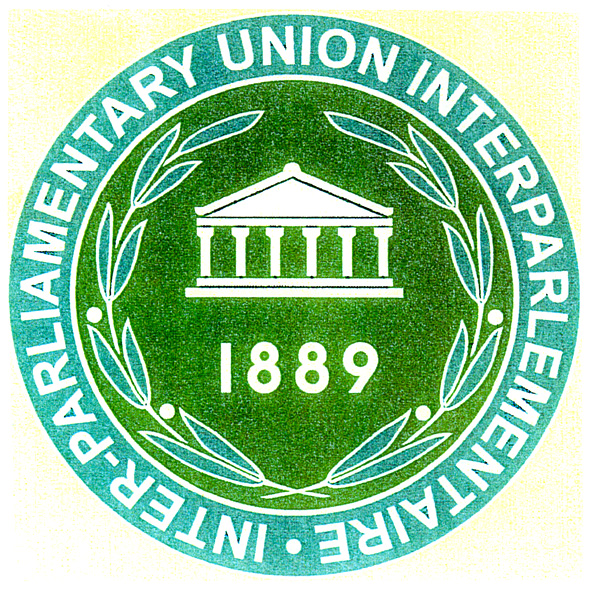By Akanimo Sampson
The Inter-Parliamentary Union (IPU) this Sunday, the International Day of Parliamentarism, is celebrating its 130th anniversary. What began in 1889 as a small group of parliamentarians, dedicated to promoting peace through parliamentary diplomacy and dialogue, has since grown into a global organisation of national parliaments.
By the end of 2019, IPU membership will inch closer to being universal – consisting of 180 national parliaments, 12 supranational parliamentary bodies, and increasing numbers of parliamentarians who attend its meetings.
“Democracy, human rights, multilateralism and the rule of law are being increasingly threatened in our world today. It is therefore urgent to take the lead and redefine our institutions, to put them at the service of the people we represent,” said IPU President Gabriela Cuevas Barron.
“The IPU is determined to bolster parliamentary diplomacy as the main driver of political dialogue for peace and development and so contribute to the reinforcement of democracy worldwide. Democracy can work only if parliaments are effective, dynamic and transparent and add to the well-being of all people, especially women and youth. That’s why the IPU today, 130 years after its creation, is needed more than ever before.”
For the organisation’s Secretary General, Martin Chungong. “The IPU has stood the test of time, constantly expanding over 13 decades and adapting to face the challenges of the world. However, despite our growth, we have never lost sight of the principles of our founders – the importance of an open forum for parliamentary dialogue and diplomacy to resolve differences and help build bridges between nations.”
Under the umbrella slogan of 130 years of empowering parliamentarians, the IPU will be celebrating its anniversary in a number of ways.
This Sunday, the Presidents of the most recent and future IPU Assemblies will meet in a “Quintet” of current IPU leadership. Ms. Valentina Matvienko, Chairperson of the Council of the Federation, Federal Assembly of the Russian Federation, President of the 137th IPU Assembly (St. Petersburg, October 2017); Ms. Gabriela Cuevas Barron, IPU President, and President of the 138th and 139th Assemblies (Geneva, March and October 2018).
Others are Mr. Ahmad Bin Abdulla Bin Zaid Al Mahmoud, Speaker of the Shura Council of Qatar, President of the 140th IPU Assembly (Doha, April 2019); Ms. Maja Gojković, Speaker of the National Assembly of the Republic of Serbia, President of the 141st IPU Assembly (Belgrade, October 2019), will join Mr. Martin Chungong at the IPU’s Geneva Headquarters, the House of Parliaments.
The Speakers and IPU leadership will discuss the ongoing relevance of the founding values and principles of the IPU 130 years on, results achieved at the previous Assemblies, and actions ahead.
The IPU member parliaments around the world will celebrate the anniversary. A group of British parliamentarians joined their French counterparts in a recreation of the original 1889 founding meeting of the IPU in Paris on Thursday, June 27.
The Hungarian Parliament, one of the founding members of the IPU, has issued a special IPU 130th anniversary commemoration stamp, as has the Russian Parliament. Other IPU Member Parliaments, from Austria to Zimbabwe, are holding exhibitions or special events to mark the anniversary.
The IPU members are also contributing to the production of a special anniversary book as well as the elaboration of a dedicated charter for parliamentary diplomacy.
Emphasizing the IPU’s strong relationship with the United Nations, an exhibition titled, 1889-2019: Celebrating 130 years of the IPU is being shown at the United Nations Office in Geneva, from June 24 to July 12 and at the United Nations headquarters in New York, from June 20 to July 20.
The IPU was founded on June 30, 1889 in Paris as the first political multilateral organization in the world, encouraging cooperation and dialogue between all nations.
The IPU was founded by two parliamentarians – one British, William Randal Cremer, and one French, Frédéric Passy. Passy went to win the first Nobel Peace Prize in 1901 followed by Cremer in 1903.
In 1899, the IPU was instrumental in setting up the Permanent Court of Arbitration in The Hague, which still functions today.
Since the 1950s, the IPU has provided technical assistance to over 100 parliaments. To date, 120 national parliaments have endorsed the IPU’s Common Principles for Support to Parliament.
The IPU has been empowering women MPs since the 1921 IPU Conference in Stockholm when female delegates were welcomed for the first time.
In 1974, the IPU pioneered in the field of gender equality, creating a separate gender programme and beginning to collect data on women in politics, becoming an authoritative reference. The percentage of women in parliament has gone up from 11.3 per cent in 1995 to 24 per cent today.
In 1976, the IPU established the Committee on the Human Rights of Parliamentarians, the only international mechanism in the world that defends the human rights of MPs. Over the decades, the Committee has helped hundreds of MPs whose human rights were abused. It is currently defending the cases of over 500 MPs from around 40 countries.
In 1994, the IPU published the Declaration on Criteria for Free and Fair Elections, and in 1997, the IPU adopted the Universal Declaration on Democracy.
In 2010, the IPU set up the Forum of Young Parliamentarians, an international framework for youth participation in democracy. Influenced by the IPU, some countries have now established electoral quotas and targets, lowered the age of eligibility, and set up networks of young MPs.
Since it began its regional seminars on the Sustainable Development Goals in 2015, the IPU has mobilized almost half the world’s parliaments to take action on, for example, climate change and better health for all.
130 years after its creation, the IPU still provides a unique global space for parliamentary diplomacy by bringing opposing sides around the table; for example, East and West during the Cold War, the Middle East, North and South Korea.
Twice a year, the IPU convenes over 1,500 parliamentary delegates and partners in a world assembly.

